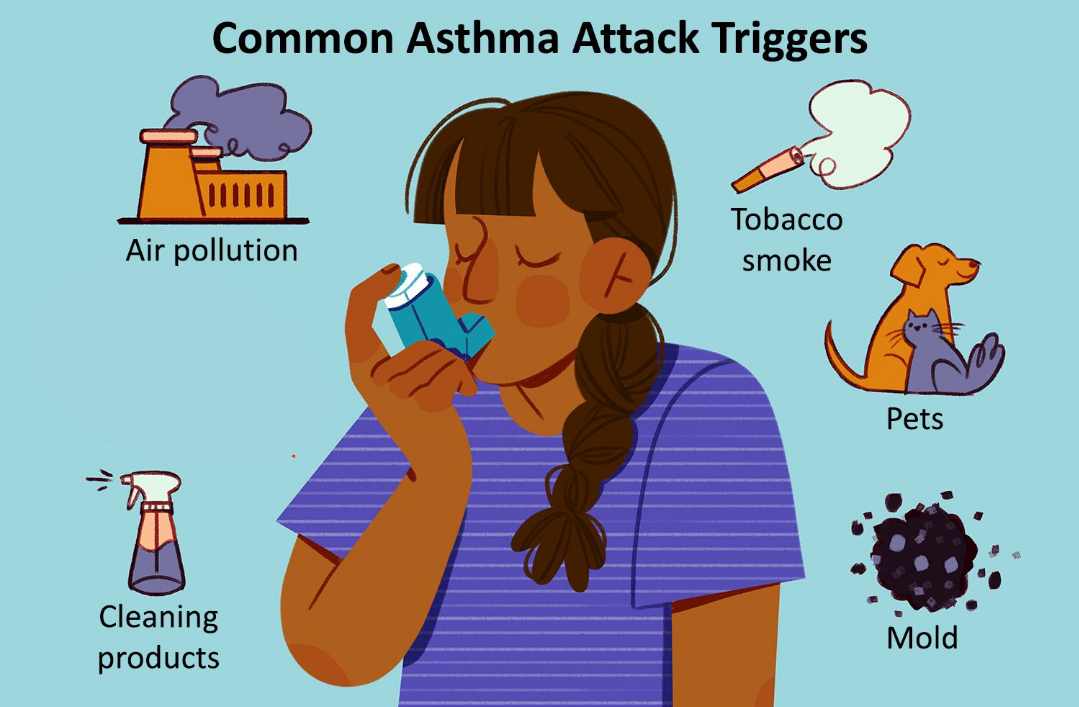
Severe asthma is a lung disease that does not respond well to typical asthma treatments. It can become serious and even life-threatening if left untreated. Asthma is commonly triggered by allergens such as dust, pets, and cleaning products, and some less common triggers like weather changes and emotional distress.
This research outlines a list of asthma triggers, the symptoms to look for in a severe asthma attack, and how severe asthma is diagnosed and treated in a hospital setting.
Symptoms
- Coughing, especially in the morning and at night
- Tightness in the chest
- Shortness of breath
- Wheezing
- Difficulty talking
- Blue lips or fingernails
- Feeling confused or agitated
- Symptoms that do not improve with medication
Causes
- Tobacco smoke
- Dust Mites
- Air pollution
- Pests
- Cleaning and disinfectant products
Diagnosis
- Spirometry: During a spirometry test, the patient will breathe into a tube that is attached to a laptop or a machine called a spirometer. As you breathe, the spirometer will measure how much and how fast air goes in and out.
- Peak expiratory flow: Peak flow measures the amount of air you can forcefully exhale. This form of measurement is helpful in monitoring severity, but is not used for diagnosing asthma.
- Fractional exhaled nitric oxide: Asthma causes the lungs to become inflamed and produces a substance called nitric oxide. This test measures the amount of nitric oxide to determine how much inflammation is in the lungs.
- Provocation: During a provocation test, a healthcare provider will introduce different allergens to see how your body reacts and how you respond when medication is administered.
How Is a Severe Asthma Attack Treated at the Hospital?
Asthma treatment at the hospital could include typical at-home asthma medications combined with additional treatments such as supplemental oxygen, bronchodilators, and corticosteroids.
Some cases of asthma are so severe that a healthcare provider could recommend a procedure called bronchial thermoplasty that uses heat to soften the airways that constrict during an asthma attack.
The length of hospitalization can vary from person to person. Some people with severe asthma are treated in the emergency room but never admitted to the hospital.
Sum-up
Severe asthma is serious and can be life-threatening. It’s recommended that people with asthma work with their healthcare provider to identify their triggers and avoid them when possible. If triggers can’t be avoided or a severe asthma attack comes on, there are treatment options available, which may require hospitalization.










